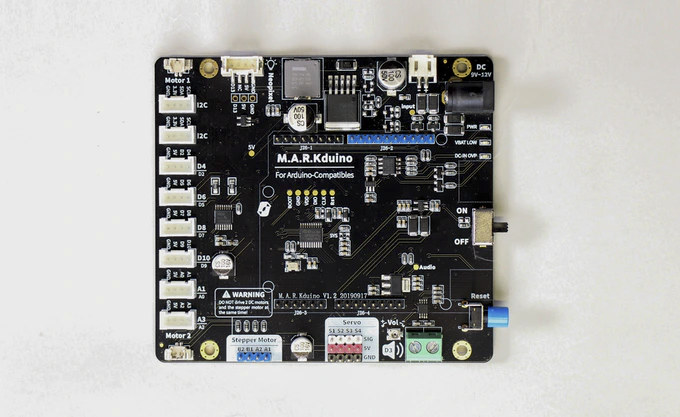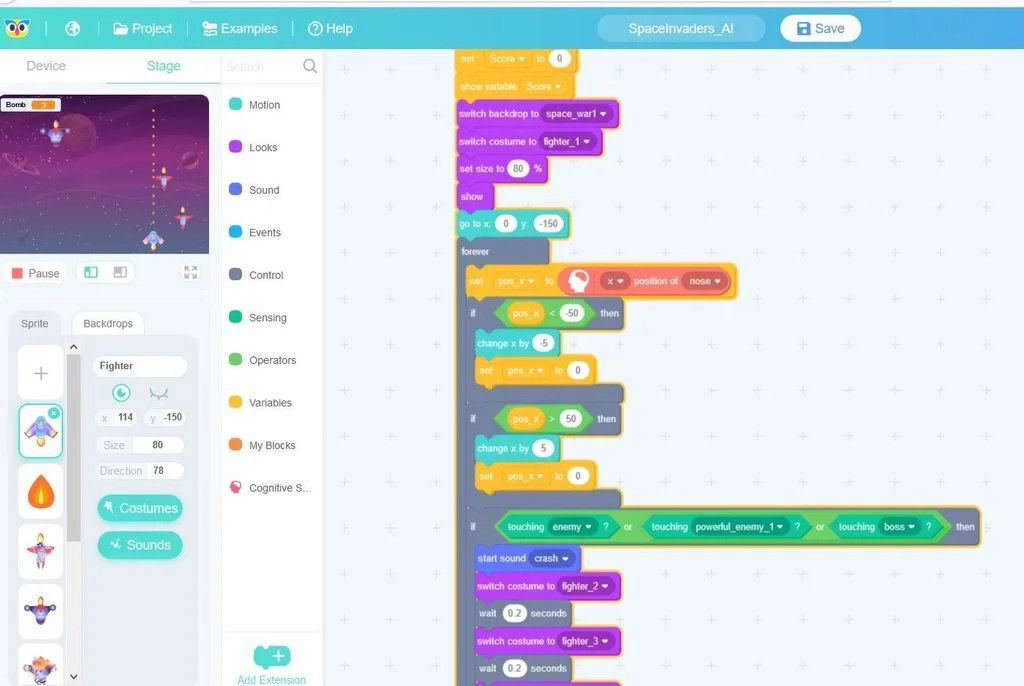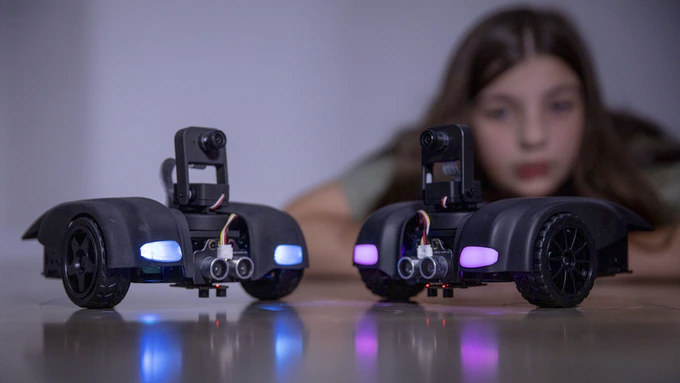We’ve written about Kendryte K210 RISC-V AI processor, and Sipeed M1 module several times including in our getting started for Maixduino and GroveAI HAT boards for low-power AI inference such as object recognition or face detection using Arduino and Micropython programming.
Shenzhen-based Tinkergen, a STEM Education owned by Seeed Studio, has now leveraged the low-cost processor to design MARK AI robot kit, where MARK stands for Make A Robot Kit, in order to processor an educational AI Robotics platform for children ages 12 years old and more.
MARK will ship as a kit with the main parts and components including a chassis, a cover, two wheels, stepper motors, a pan-tilt camera with K210 processor, a 2.4″ LCD display, Grove & Arduino compatible MARKduino interface board, some sensors, and six AA batteries.

Tinkergen offers pre-trained model to recognized objects like humans, books, pens, or smartphones, as well as traffic signs, numbers from 1 to 9, as well as domestic and wild animals. As such, the company also provides signs, as well as optional illustrated and numbered cards together with magnets and card stands to facilitate various AI recognition applications.
Students have two ways to learn programming depending on their experience and ability:
- Codecraft visual programming software based on Scratch 3.0. It will generate Python code that you can edit in the software.
- MaixPyIDE – That’s the default software used with Sipeed M1 module, geared towards more advanced users who can program using MicroPyhon and OpenMV directly.

Some documentation is on Tinkergen website providing information about assembly, driver installation, and various tutorials to get started.
MARK has recently launched on Kickstarter with an $8,000 funding target that’s easily been surpassed. Rewards start at $119 with the robot kit plus a few sign cards. They have other kits with more accessories including animal and number cards, a Sumo battle map, an autonomous driving map, and a robotics expansion pack adding grabber and slingshot arms/attachments. Shipping adds $14 to Greater China, and up to $46 to the rest of the world. Backers should expect their robot kit to ship sometimes in July 2020 soon after the crowdfunding campaign is over.

Jean-Luc started CNX Software in 2010 as a part-time endeavor, before quitting his job as a software engineering manager, and starting to write daily news, and reviews full time later in 2011.
Support CNX Software! Donate via cryptocurrencies, become a Patron on Patreon, or purchase goods on Amazon or Aliexpress





